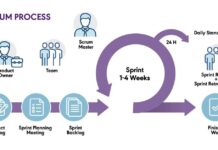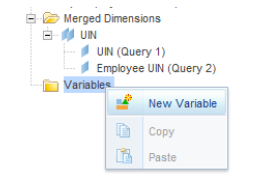Do you have a crowded calendar? Are you pulled in many directions at the same time?
When two or more meetings clash in the same time slot, choosing the best one to attend should be based on which one delivers the highest return on investment (ROI) in terms of time, influence, impact, and necessity. Below is a prioritized list of factors to consider, from most critical to least:
🧭 Factors to Consider When Choosing Between Conflicting Meetings
1. Strategic Importance of the Meeting
- Is this meeting tied to a critical strategic initiative, decision, or milestone?
- Prioritize meetings that directly influence business goals, OKRs, or cross-functional alignment.
✅ Attend if: Decisions affect your team/org’s direction, budget, or major outcomes.
2. Your Role in the Meeting
- Are you a decision-maker, key contributor, or optional attendee?
- If your presence is required to move something forward or unblock others, that’s high ROI.
✅ Attend if: You’re the owner, presenter, or your input is essential for outcomes.
3. Urgency / Time-Sensitivity
- Is one meeting time-bound, with no easy way to reschedule or catch up later?
- Urgent escalations, tight deadlines, or customer-related meetings take precedence.
✅ Attend if: There’s a deadline today or tomorrow, or it can’t be postponed.
4. Business Impact
- Which meeting has more impact on revenue, risk reduction, cost savings, or team velocity?
- Consider the downstream effects of decisions being made.
✅ Attend if: Skipping it could delay projects, miss revenue opportunities, or cause blockers.
5. Opportunity to Influence or Learn
- Will you have the chance to contribute ideas, gain key information, or build visibility?
- Meetings that expand your influence or strategic awareness can be more valuable long term.
✅ Attend if: It helps career development, networking, or strategic context building.
6. Meeting Efficiency & Quality
- Is one meeting known to be well-run, outcome-focused, and productive?
- Avoid habitual status updates or meetings with no clear agenda or owner.
✅ Attend if: It’s run efficiently and will lead to decisions, not just discussion.
7. Availability of Alternatives (Recording, Delegate, Reschedule)
- Can you delegate or get a recording/summary of one meeting?
- If you can catch up without being live, deprioritize that meeting.
✅ Skip if: You can review the recording or send a delegate to represent you.
8. Who Else Is Attending (Stakeholder Value)
- Are execs, clients, or high-impact stakeholders attending?
- High-value relationships might tip the balance.
✅ Attend if: Being in the room with influential people gives long-term leverage.
🧠 Summary: Priority Order for Choosing the Best Meeting
- Strategic Importance
- Your Role / Criticality
- Urgency / Time Sensitivity
- Business Impact
- Opportunity to Influence or Learn
- Meeting Efficiency
- Availability of Alternatives (Recordings / Delegation)
- Who Else is Attending
✅ Meeting Conflict Resolution Checklist
Instructions: For each conflicting meeting, go through the checklist and tally the score. Higher score = higher priority.
| # | Factor | Question | Yes (+ Points) | No (0 Points) |
|---|---|---|---|---|
| 1 | Strategic Importance | Is the meeting directly tied to key strategic goals or initiatives? | +3 | 0 |
| 2 | Your Role | Are you a key decision-maker, presenter, or blocker remover in this meeting? | +3 | 0 |
| 3 | Urgency / Deadline | Is this meeting addressing a time-sensitive issue or upcoming deadline? | +2 | 0 |
| 4 | Business Impact | Will the meeting affect revenue, cost, risk, or major project outcomes? | +2 | 0 |
| 5 | Influence / Visibility | Will attending help you influence outcomes, build visibility, or learn something strategic? | +2 | 0 |
| 6 | Meeting Efficiency | Is this meeting typically productive and action-oriented (not just status updates)? | +1 | 0 |
| 7 | Alternatives Available | Can you delegate your attendance, reschedule, or access a recording/summary? | -2 (if YES) | 0 |
| 8 | Stakeholder Presence | Are key stakeholders, clients, or execs attending whom you need face time with? | +1 | 0 |
🧮 Scoring Guide
- 7–10 points: ✅ High priority – Try to attend or make the other meeting flexible.
- 4–6 points: ⚖️ Medium priority – Consider options (delegate, partial attendance).
- 0–3 points: ❌ Low priority – Skip, delegate, or catch up asynchronously.










